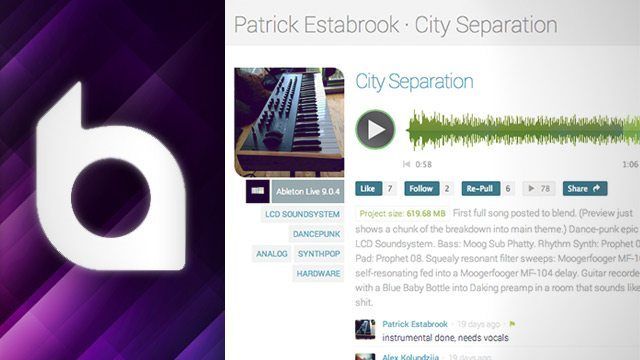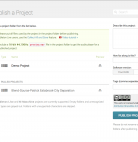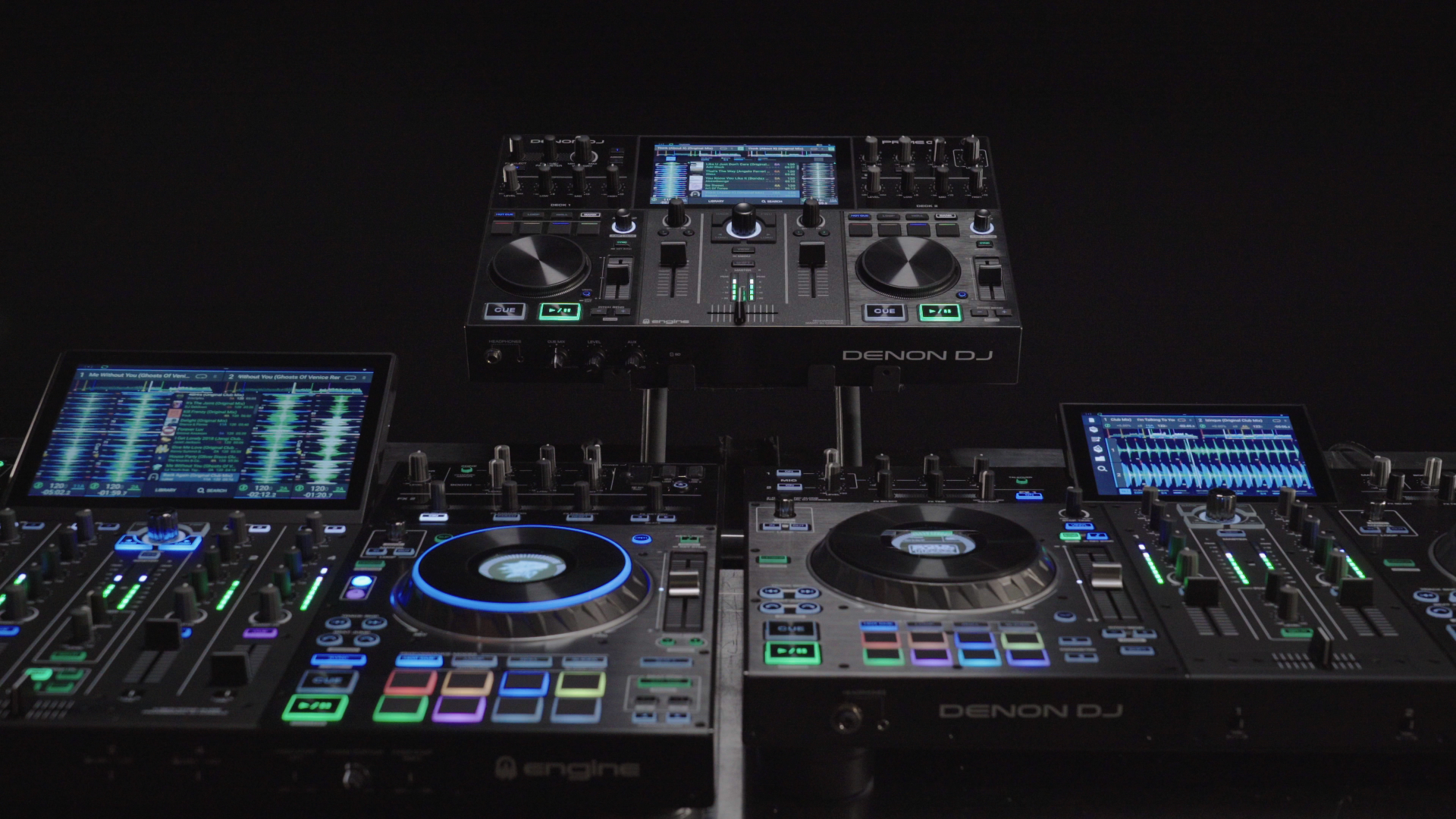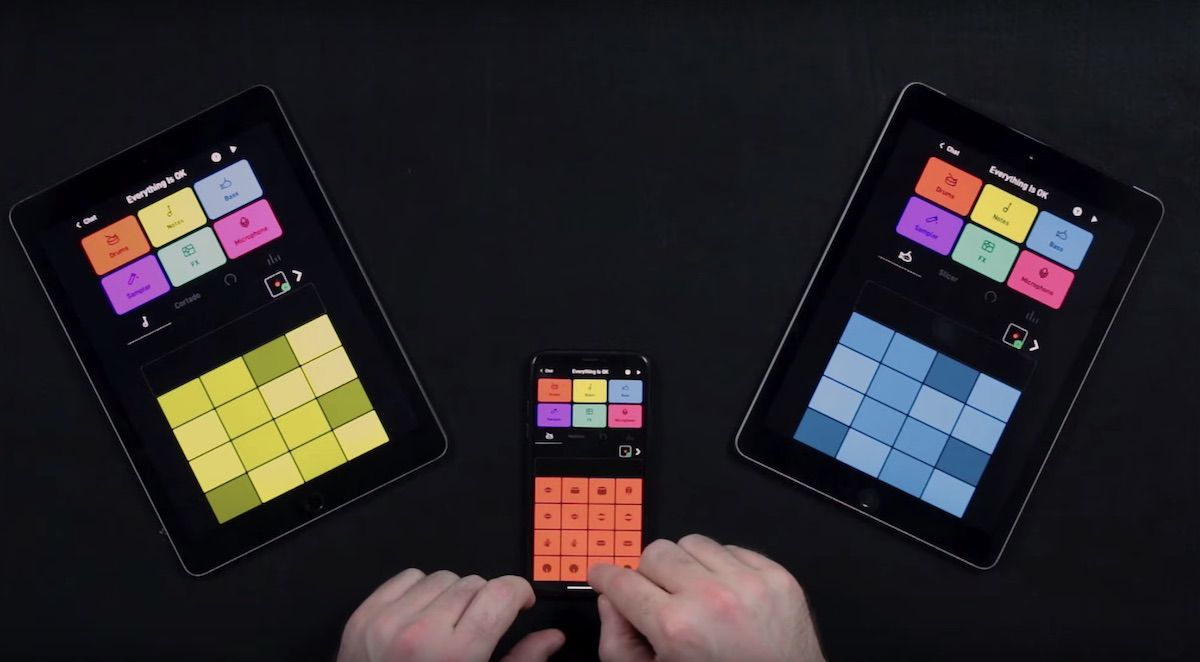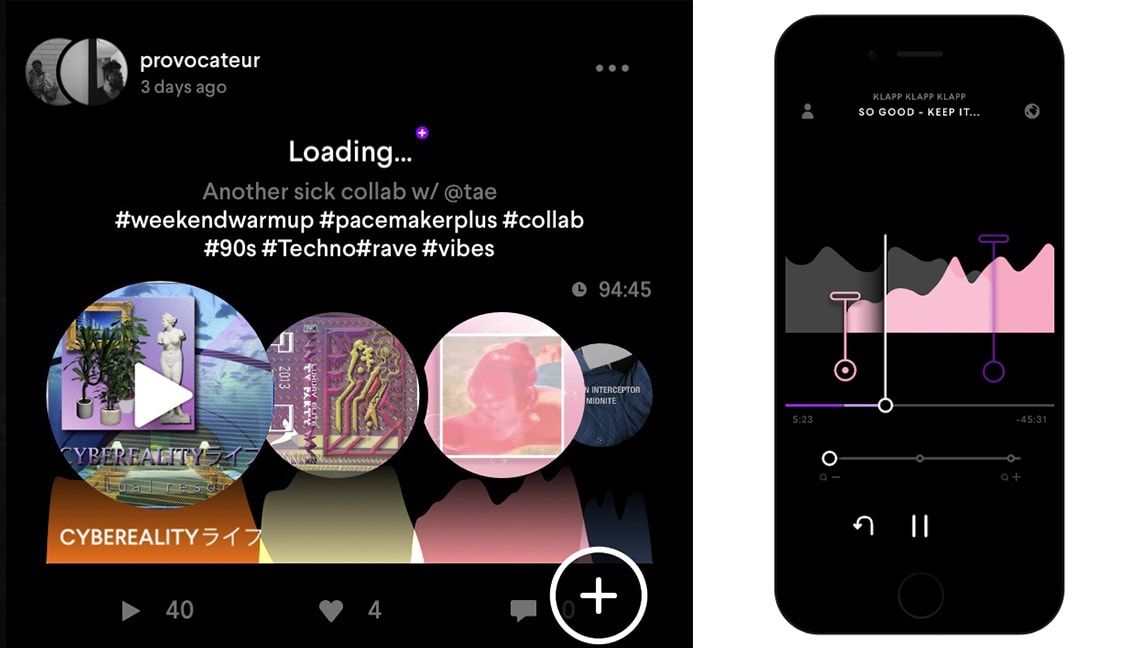If you’ve ever had the urge to collaborate with a fellow musician but have run into the messy tangle of software compatibility, sharing services, and slow communication, a few upstart music tech developers in New York might just have the solution for you. Blend.io, currently in beta, is a website that enables real time collaboration and remixing across the web. Inside, check out our first look at the beta, read an interview with the founder, and get instant access to the beta!
Aiming not to be a Soundcloud-killer, the site instead fills the gap in collaboration mediums online by creating an easy to use site that allows for easy downloading, editing, and auto-updating. The experience feels a bit like GitHub for producers. The interface, with waveform displays reminiscent of Soundcloud, syncs with Dropbox to create a “pull” feature, which auto-updates a draft of a track as soon as someone edits it, all while keeping a record of all changes in case future disputes arise.
It’s actually reminiscent of an abandoned project with Ableton which some beta testers might remember as “Ableton Share” – which also used a Dropbox-esque system to allow collaboration across the web between different producers.

Despite its beta status, a cursory look at the site reveals an energized community far from the spam of Soundcloud and YouTube – Blend.io seems to have fostered a tightly-knit group of creative people that interferes very little with the “industry” side of electronic music. While the service currently only accepts Ableton and Maschine files, there’s potential here for a wide array of applications, from cross-platform software creations to collaborative DJ mixes.
The pages that make up the bulk of the site (screenshots below) include:
- individual project pages with tons of metadata, great previews, history of project pulls, compatibility information, and comments
- publish page for uploading a project of your own
- a site-wide Cred Board showing the most followed members of the community (the site’s founder is winning currently)
- exploration pages that allow you to search for new projects to check out and rapidly preview
DJTT Exclusive Access: We’ve got complete access to the beta – no waiting – just use this link to sign up:
http://blend.io/vip/
We had a number of questions after spending a few days in Blend.io playing around and checking out all of their features – so we set up an interview with the founder and CEO of Blend.io, Alex Kolundzija. The text of the interview follows:
Talk a bit about founding the service – what drove you to create another electronic music platform in the already claustrophobic internet marketplace?
ALEX: Music is a collaborative art form yet collaboration today remains constrained by location, space, time, cost, even image and genre. We’re seeing growing evidence of musicians and producers hacking their way around these limitations by sending files via email or ftp, and even mailing hard/thumb drives back and forth. More recently, Dropbox and SoundCloud are often in the mix and while they help, their goal is not to solve this problem. Blend.io solves the cross-geo music collaboration problem elegantly.
As musicians, we know that modern DAWs are essentially instruments and we don’t expect users to easily switch to a different tool. Instead, we want to enhance the existing workflows not only for collaborators, but also for single-users who will benefit from having their consolidated projects backed-up on Blend, annotated, categorized, easily previewable, and shareable.
What about your background – are you (and your team) based largely in the tech sector, or did you have a background in music and DJing prior to founding the service?
ALEX: Blend.io’s core team is made up of producers and musicians, some with prior record releases (techno, house, indie rock, jazz, etc.) as well as touring experience. The product team is made up of super talented engineers who are genuinely passionate about Blend.io. We have Ableton Live MIDI controllers in the office and team members have a tendency to splurge on things like the Prophet 8 or the Tempest drum machine.
For me personally, Blend combines two of my deepest areas of interest: technology and music. Prior to joining Betaworks (our parent company) to build Blend.io, I worked at companies including Google, Meebo and MLB.com and have produced tracks which have been released on labels including Bush, Gotham Grooves and Planet Natus.

A huge problem for collaborators is compatibility between software – you’re currently only accepting Ableton and Maschine entries – have you given thought to creating cross-platform solutions for collaborators?
ALEX: Interestingly, this isn’t only a problem for collaboration. I am an Ableton Live user but come from the Nuendo/Cubase background and have dozens of projects scattered on CDs and DVDs which would be difficult for me to revive today. What we’ve already seen on Blend.io is an emergence of patterns which we hope present to DAW makers to collectively improve the flow for music makers. Some of these have began to surface on our blog. We’re also collecting interesting project templates and are working on a community-driven best practices section of the site. Whether we’ll ever reach a set of standards is yet to be determined, but we have reason to be hopeful.
Is there an end product goal for content on Blend.io? Do you see the platform as being a stepping stone to more “mainstream” channels, like Soundcloud or YouTube, or do you aspire at some point to compete in that marketplace as well?
ALEX: We’d love to see the Blend community and their behavior influence the product direction but we do have a compass centered around helping musicians and producers gain exposure and establishing their reputation. By starting and collaborating on projects, getting plays, followers, pulls, likes, etc. Blenders can now accurately be represented through super accurate metrics, which is something that we plan to use to help artists generate value in the near future. Being able to discover a musician or remixer on Blend.io based on their actual work, then hire them and pay them directly through Blend would be a unique offering that we’re very actively exploring.
Like any start-up service, the initial users are rarely the “veterans” of the scene – how do you see the more “celebrated” musicians and producers fitting into the service?
ALEX: Great question. We envision a number of ways that established artists can be involved in Blend.io and are talking to a few about different types of engagement. Many are eager to jump in and experiment; they see the potential and want to be associated with the product. In general, there has been overwhelming interest and enthusiasm.
Immediately upon signing up, we received 3 followers – we also noticed that a lot of the commentary on the site was generally helpful – how do you foster a community that is consistently positive? How do you plan to maintain quality content and feedback as the service expands?
ALEX: The feedback from the early community has been super constructive and helpful. We attribute a part of the reason to lack of (and need for) such a product. Using a DAW is a very lonely experience and so much of today’s music revolves around experimentation and remixing. Those of us who are developers have experienced first-hand the hugely positive impact that open source code has had on technology. We’d like to apply some of those paradigms to music production and are eager to see where that takes the art form.

It goes without saying that intellectual property and the internet have had a thorny history: what is your approach to content from producers? Do you have an approach to end-use of collaborated material (crediting, production listing, etc.)
ALEX: This is another area that we expect to evolve with feedback from the community. Currently, projects are published with a Creative Commons license. Attribution of project originators and all other collaborators is key.
Where do you see the service going? Are you interested in expanding to all genres? Are you interested in incorporating other performance mediums, like DJing or live work?
ALEX: A talent-marketplace is intriguing to us. A platform where fans can not only discover new music, but also participate in the creative process (by up-voting, commenting, etc) is also interesting. A Blend label for releasing most popular, completed projects is also something we’re considering. Support for private projects, for individuals, bands, schools is on the roadmap.
While the early community is made up of Ableton Live and Maschine producers and the electronic music genres are pretty dominant, other genres are growing as well. We’re particularly curious to hear some of the cross-genre collaborations which would probably not have happened without Blend.io.
Any UI updates in the works you’re excited to talk about? Feature additions?
ALEX: We’re moving very quickly, yet we’re just getting warmed up. We recently released push notifications and various audio player updates. CredBoard is getting a complete overhaul and will surface some of the reputation mechanics I mentioned. Detection and pre-population of DAW version, third-party plugins, etc is around the corner, while support for other DAWs is also on the horizon.
Let us know how you like the beta – and if you want more access to beta tools like this in future articles – in the comments below!


